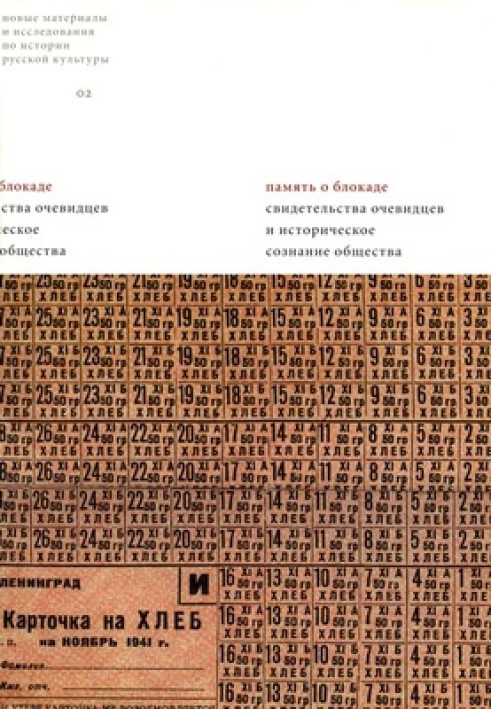"Tell me about your life"
 Instant download
Instant download
after payment (24/7)
 Wide range of formats
Wide range of formats
(for all gadgets)
 Full book
Full book
(including for Apple and Android)
The first part of the article will discuss issues related to the methodology used by a group of researchers from the European University in St. Petersburg while working on the projects “The Siege in the Fates and Memory of Leningraders” and “The Siege of Leningrad in the Individual and Collective Memory of the City Residents.” I will focus on the basic principles of selecting informants and the choice of interviewing methodology (related to the goals and objectives of the research being conducted), and on the changes that we made to the tasks assigned to us during the work on the projects. In addition, situations and scenarios for conducting interviews, principles of transcription (written transcripts of received audio recordings) and storage of a collection of oral memories in the archive of the Center for Oral History of the European Union of St. Petersburg will be described. The second part of the article will be devoted to the analysis of the features of the transfer of traumatic experience in a biographical interview, which will be discussed at example of two stories-memoirs of witnesses of the siege. In the first interview, tragic experiences are consistently excluded by the respondent from the biographical construction. Another interview is a typical example of the realized possibility of verbal transmission of experience associated with the displacement of ethical standards in extremely extreme conditions, in a story close to a confessional one.
Data sheet
- Name of the Author
- Виктория Календарова Владимировна
- Language
- Russian















